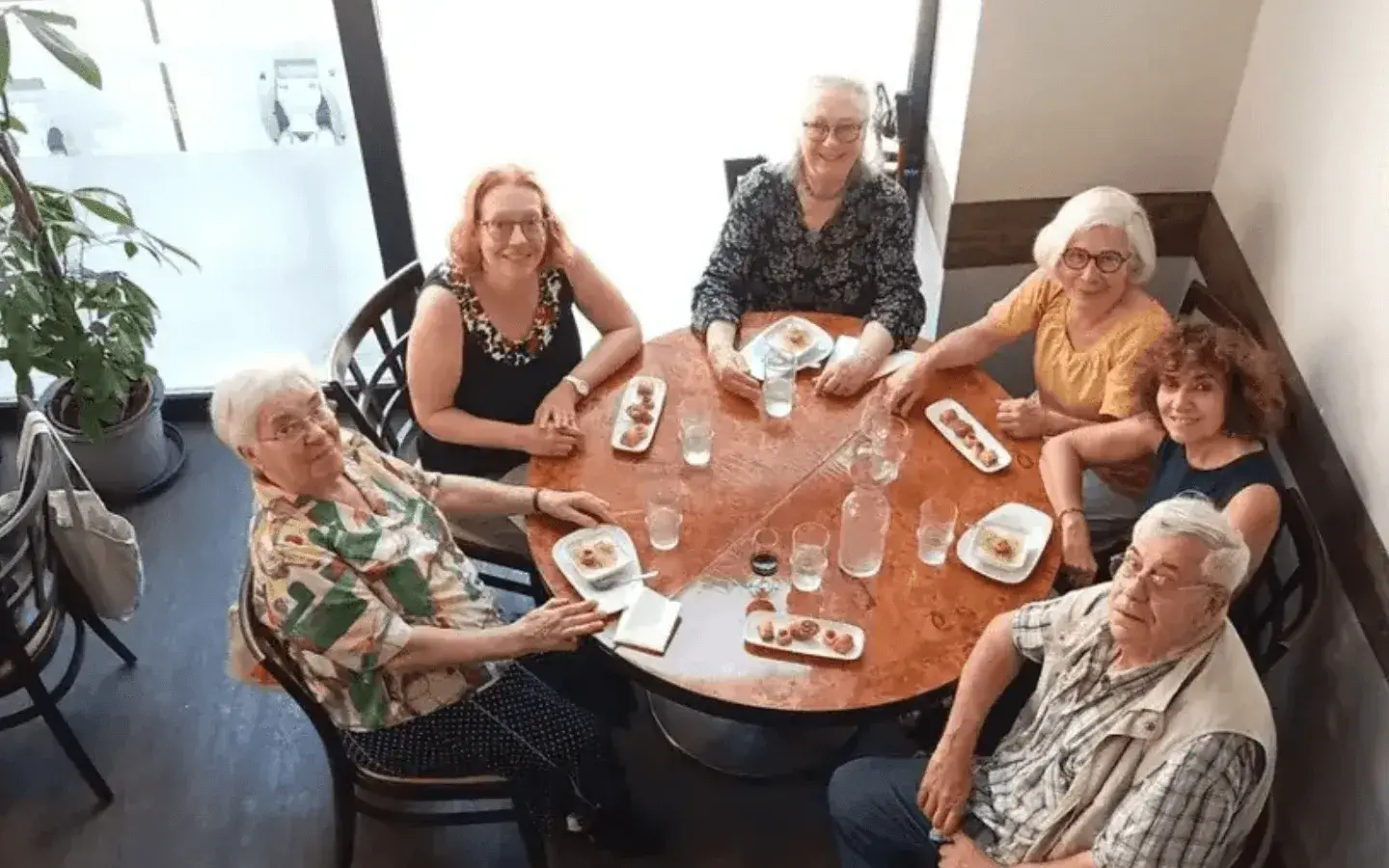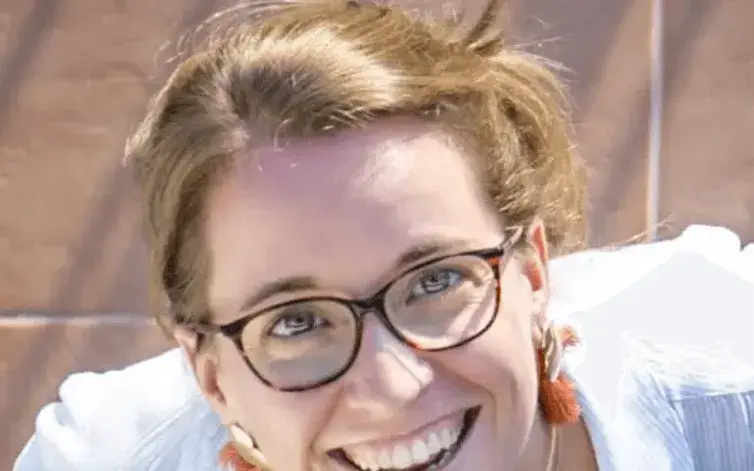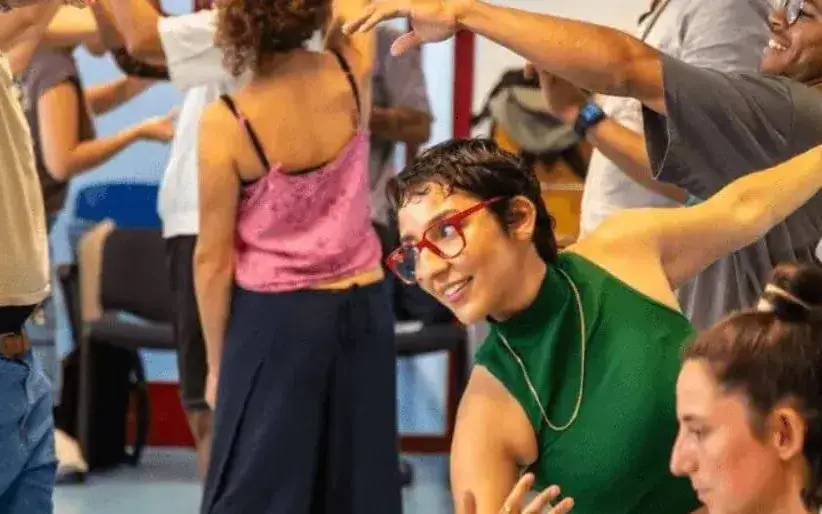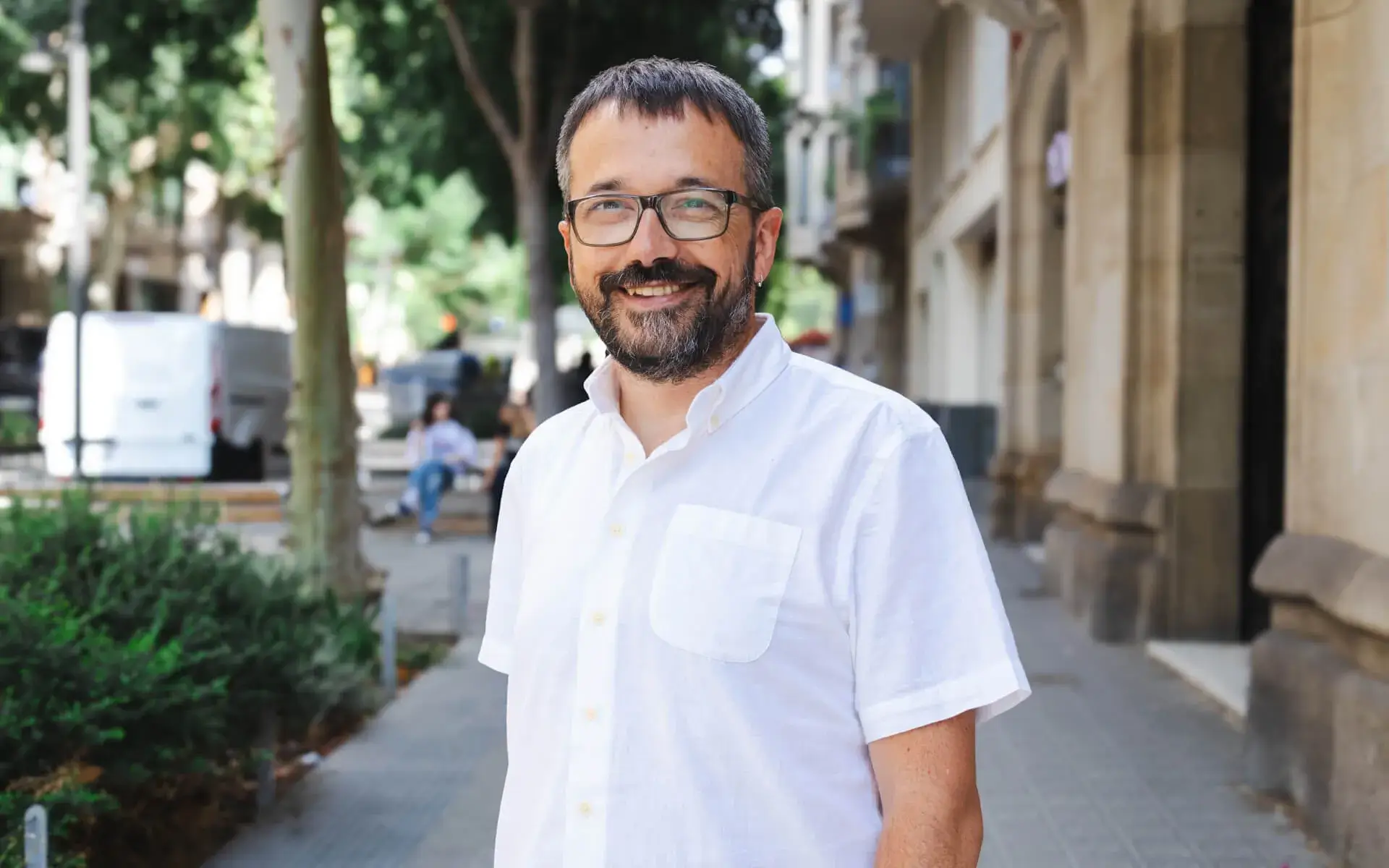Montserrat Aymamí: “Without a successor, the Casal Català de Grenoble will end in a few years”
We talked to the president and promoter of the Casal Català de Grenoble, founded in 1996.
Montserrat Aymamí has dedicated a good part of her life to promoting the presence of Catalan culture in Grenoble thanks to the city's Casal Català –also called Maison de la Catalogne de Grenoble–, which she founded and has chaired since 1996.
Beyond this and her work as a teacher, Aymamí also chaired the International Federation of Catalan Entities (FIEC) and in 2008 she was awarded the Batista i Roca Prize, which recognizes the work of Catalans living abroad in promoting the presence of Catalan in the world.
With Montserrat, we review the intense activity that, for many years, the Casal Català de Grenoble has carried out in areas such as historical memory, art, music and, obviously, the promotion of the Catalan language and culture. However, the lack of generational succession and the loss of institutional support threaten the continuity of the entity, which for almost three decades has been a meeting point for the Catalan community in the region.
What led you to go and live in France?
I lived in Sabadell and from a young age I was clear that I wanted to study, but my mother told me that I couldn't, that I had to start working. My father, who had been a Republican resistance fighter and was imprisoned in the Argelès concentration camp, and then in the Model in Barcelona, became ill. He suffered from depression because a member of the Falange, who had forbidden him from leaving prison, entered the family. At that time, I didn't understand anything and I started working, but at the slightest opportunity I had, I ran away.
It was 1966.
Yes, I met a French boy who fell in love with me and I left with him. We had children and, because of my husband's work, we lived in different cities in France, until we finally settled in Grenoble.
There you were able to fulfill your dream of studying.
Yes, I studied sociology and linguistics. I also worked at the university and later, at a business school. This was a very interesting job that allowed me to travel to countries like Argentina, Chile, Peru, Costa Rica, Mexico or Cuba.
At that time, a theme kept being in your mind.
Because of my family history, and because of everything my father had gone through as a result of the war, I was obsessed with discovering what had happened to the Catalans who were forced into exile. I wanted to know why they had fled, where they had lived…
And you started to investigate.
And the truth is that I found and was able to contact quite a few of them. Every time I traveled to another country, my obsession was to find people who had fled during the war. Many of them told me extraordinary stories. In addition, I was able to help some families who had been separated by the war reunite. All of this gave rise to a kind of network of reunions.
"My dream is for more Catalans to learn to communicate and spread their culture."
What does this historical memory task have to do with the Casal Català de Grenoble?
When I settled in Grenoble, together with a few Catalans from the Rhône-Alpes region, we founded the Casal Català de Grenoble –or Maison de la Catalogne de Grenoble–. And one of our main objectives was to reunite all those Catalans who had fled Francoism and the dictatorship. Unfortunately, your father was not able to see it, because we launched the Casal on September 11, 1996, and my father died a year earlier.
You have pulled a lot on the thread of historical memory.
Over the years, within the framework of the Casal, we have done a lot of work to talk about issues such as the participation of the Republicans in the Second World War. We have actively participated in projects in this area, such as one with Catalan, French and German roots on exile among young people from the three countries. We have also organized conferences and exhibitions, on the children stolen from Francoism, for example. And we have had prominent guests such as Judge Baltasar Garzón, who came to speak about universal justice.
However, the Casal's activity has gone far beyond historical memory.
Yes, obviously we have also focused a lot on the dissemination of Catalan culture, but also in areas such as art and music. Paco Ibáñez came to sing at the Maison, soprano Núria Mampel gave a lecture on 'The Music of Catalonia', and we even promoted our own musical formation, the Quartet Catalònia, in which I also sang, and with a repertoire that included Catalan and Havanan popular songs, among others.
You have also promoted important figures from our country.
With the Maison de l'Architecte, for example, they promoted a conference on Gaudí. And we have given public readings in Catalan and in French by Maragall, Folch i Torres, Martí i Pol or Rodoreda, among others.
The promotion of the Catalan language has also played an important role in the activity of the Casal.
Obviously, perhaps our most continuous activity has been the Taller de Català, which is still running today. I teach it myself and I try that, in addition to learning Catalan, the students also learn about the popular festivals and current events in Catalonia.
You mentioned that you have quite special students.
We have a ninety-year-old lady who crossed the border between Spain and France on foot in 1939. In her case, she was forbidden to learn Catalan and is now studying it with us. Whenever I teach her a popular Catalan expression, she exclaims: “That's what my father said!” These are very unique and special things.
One of the most popular activities is the Catalan Dictate.
We have been celebrating it for over fifteen years and it is the one that has taken root the most in France, after the one in Perpignan. Similarly, we have also set up a short poetry competition in Catalan, among others.
The activity of the Casal Català has been very intense. Will you continue like this?
The truth is that we have not. After all, we are a small Casal and we have few members –around fifteen, currently–, of whom the vast majority are elderly. Besides, things have changed a lot and today young people no longer want to get involved too much, communication and mobility are very different from what they were before… Today everything is more complicated. Life has changed and we have to adapt.
You have also accused the lack of support from the Catalan administration.
Yes, for a few years now the Generalitat has no longer helped us or given us subsidies. They didn't even reimburse us for activities that had already been done, which I had to pay for out of my own pocket. As I do with Catalan workshops or the venue's insurance, in fact. In the first few months I grumbled a bit and complained about this lack of support, but they clearly told me that what we were doing was not interesting.
Doing activities has a cost.
Obviously, and we don't even have five. And, of course, we can no longer bring anyone in like we had done for many years. This makes us very sad, but we are doing it and we are happy. And we will continue.
I sense that you have a lot of difficulty finding a generational replacement.
It is very difficult. I have two daughters and their project is not the Casal. Besides, the young Catalans who are in Grenoble prefer to return to Catalonia often, and they don't come to see us. I suppose that the proximity to Catalonia also has an influence. And things have changed and we have to accept it, spaces like the Catalan casals can no longer open any doors to young people, who tend more towards individualism and, if they want Catalan culture, prefer to go down to Catalonia than to approach here.
So, how do you see the future of the Casal Català de Grenoble?
Since no one wants to take over, for the time being, I think that little by little the few of us who are left will end up giving up and this will end. Without a successor, the Casal Català de Grenoble will end in a few years, I imagine in about eight or ten years.
A dream that you want to fulfill before that happens?
My dream is that there are more Catalans who learn to communicate and spread their culture, instead of just thinking about enjoying and having a good time. That they do it, but above all that they also defend Catalan.







Add new comment